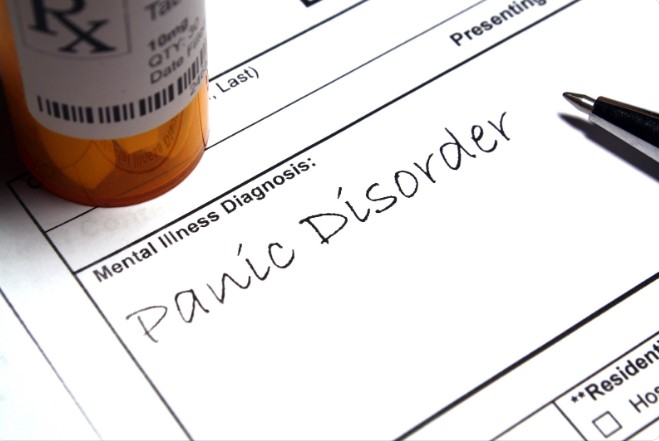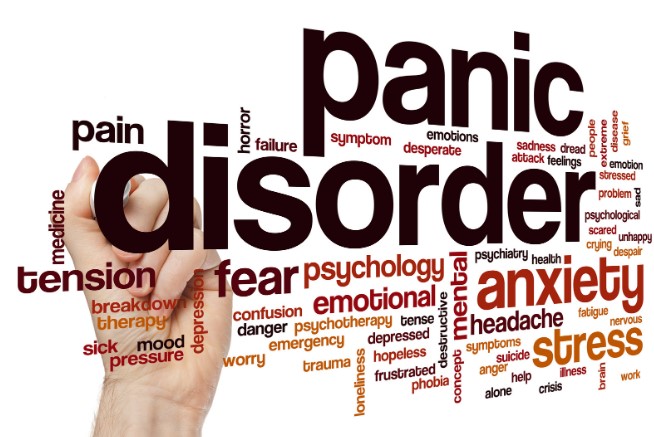Florida’s diverse population and unique stressors make panic disorder a significant concern for many residents. Characterized by sudden, intense episodes of fear, physical discomfort, and a persistent dread of future attacks, panic disorder can significantly disrupt daily life. Recognizing this, mental health professionals across the state have made specialized care their priority. At URP Behavioral Health shares information on support options related to panic disorder, which some individuals may find useful panic disorder treatment centers Florida as they explore possible care pathways. As awareness of mental health challenges grows, more Floridians are discovering effective interventions tailored to their unique needs.
Evidence-Based Approaches to Treating Panic Disorder in Florida Clinics
Clinics throughout Florida emphasize evidence-based interventions to address panic disorder. These facilities prioritize accurate diagnosis, beginning with comprehensive clinical assessments that consider both physical and psychological factors. Given the overlap between panic symptoms and medical conditions, a thorough evaluation ensures that treatment targets the root cause and avoids unnecessary delays.
Cognitive-Behavioral Therapy (CBT) remains the cornerstone of panic disorder treatment in Florida. CBT helps individuals identify distorted thought patterns fueling their anxiety and teaches practical techniques for facing and tolerating distressing sensations. Exposure therapy, often integrated into CBT, guides patients through gradual, controlled exposure to situations or symptoms they fear, reducing avoidance behaviors and fostering confidence.
Medication management is another essential aspect of care in many Florida clinics. In some treatment contexts, clinicians may consider medications such as SSRIs, SNRIs, or, in certain cases, benzodiazepines to help manage symptoms. Decisions about medications are highly individualized and should be made under the supervision of a qualified medical provider. Psychiatrists collaborate closely with therapists to tailor medication plans, monitoring for effectiveness and addressing any side effects.
Support groups and psychoeducation complement individual therapy, providing patients with information about panic disorder and connecting them with others facing similar challenges. Clinicians may also incorporate mindfulness-based interventions and relaxation training to help manage physiological symptoms, encouraging ongoing self-care outside of formal sessions.
Florida clinics take a holistic approach, recognizing the role of lifestyle factors in panic disorder. Sleep hygiene, nutrition, exercise, and stress management are routinely discussed as part of the recovery process. For individuals whose symptoms interfere with work, school, or relationships, case managers often coordinate with family members and employers, promoting a supportive environment that extends beyond the clinic walls.
Integrated Care Programs at Mental Health Treatment Centers in Florida

Effective panic disorder treatment often requires a multidisciplinary approach. Mental health treatment centers across the state have responded by integrating services that bridge the gap between therapy, medication, and community support.
At the core of these programs is the collaboration among psychiatrists, psychologists, social workers, and medical professionals. This team-based model ensures that every aspect of a patient’s well-being is addressed, from the biological underpinnings of panic disorder to the social and behavioral factors that may maintain symptoms.
Partial hospitalization and intensive outpatient programs (IOPs) are available for individuals who need more than weekly therapy but do not require full inpatient care. These structured settings provide several hours of therapy each week, allowing for rapid progress while maintaining independence in daily life. Group therapy sessions foster peer support, while individual counseling remains available for personalized guidance.
URP Behavioral Health highlights the inclusion of trauma-informed practices in some of its programs mental health rehab Florida which may be relevant for individuals exploring care options where past experiences are a contributing factor. By addressing co-occurring conditions such as depression, substance use, or chronic medical issues, Some clinics aim to support long-term stability by addressing co-occurring conditions, though individual outcomes may vary depending on many factors.
Family therapy often plays a role in these integrated programs, particularly for younger patients. Educating family members about the nature of panic disorder and effective ways to provide support can dramatically improve the individual’s recovery journey and reduce feelings of isolation.
Some centers also utilize cutting-edge digital health tools, offering teletherapy sessions and mobile applications for symptom tracking and skill practice. These innovations broaden access for Floridians in rural or underserved areas, ensuring consistent care regardless of location.
Personalized Treatment Planning
Florida clinics recognize the importance of tailoring care to each individual’s circumstances. Treatment plans are developed collaboratively, considering the person’s strengths, preferences, cultural background, and treatment goals. Regular progress evaluations allow for adjustments in therapy modalities, medication dosing, or levels of care as needed.
Measuring Success: Outcomes and Patient Experiences in Florida Clinics
Some clinics in Florida monitor treatment progress using patient feedback and clinical tools to better understand individual symptom patterns over time. Clinics use a combination of standardized anxiety rating scales, self-reported symptom diaries, and clinician observations to document progress over time.
URP Behavioral Health supports individuals in monitoring their symptoms through resources like https://urpbehavioralhealth.com/blog/panic-disorder-test/ which helps patients and providers assess the severity and frequency of panic attacks, track improvements, and identify triggers. This data-driven approach informs decisions about when to adjust treatment or introduce new interventions.

Outcomes commonly reported by patients attending mental health treatment centers in Florida include:
- Reduced frequency and intensity of panic attacks
- Improved daily functioning and return to work or school
- Enhanced coping strategies for stress and anxious thoughts
- Greater confidence in managing physical symptoms
- Increased social engagement and reduced avoidance behaviors
Clinics also value qualitative feedback, such as stories of regained independence, improved relationships, and participation in meaningful activities. These successes reflect the importance of comprehensive, patient-centered care models in achieving sustained recovery.
Challenges and Future Directions in Florida's Panic Disorder Treatment
While Florida clinics have made considerable strides, challenges remain in increasing access, reducing stigma, and ensuring continuity of care. Rural areas, despite advances in telehealth, may still face provider shortages and limited resources. Insurance coverage for mental health services can pose barriers for some individuals, highlighting the need for advocacy and policy reform in the state.
Emerging research on neurobiological mechanisms, genetic factors, and digital therapeutics presents new opportunities for innovation. Florida’s mental health community remains committed to adopting evidence-based practices, collaborating with national leaders, and expanding public education initiatives to foster early intervention and resilience.
Choosing the Right Mental Health Treatment Center in Florida
Selecting a clinic for panic disorder treatment is a critical decision. Floridians exploring options for panic disorder treatment may find it helpful to review facility information, including provider backgrounds and treatment approaches. Organizations such as URP Behavioral Health share educational resources that can support individuals in making informed care decisions.



+ There are no comments
Add yours